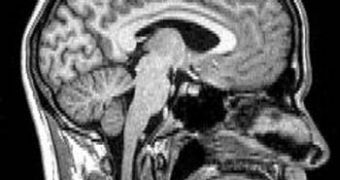Experts at the University Hospital in Basel, Switzerland, have found out that the tau protein can spread throughout the human brain with relative ease, and that it can also trigger the development of Alzheimer's disease. They have also managed to learn that its structure is similar to that of the prion proteins that cause the variant Creutzfeldt-Jakob disease (vCJD). The latter is a degenerative neurological disorder and the most common form of transmissible spongiform encephalopathy in humans.
Usually, tau proteins play a very important part in keeping brain cells functioning properly, and can be found in each and every one of them. But certain variations can cause nerve cells to clump together, in formations known as neurofibrillary tangles, which are characteristic of Alzheimer's.
For the new research, the Swiss experts took brain samples from unsuspecting mice, which were expressing a modified form of the human tau protein, and injected them into healthy mice. Shortly after the implantation, the brains of the healthy creatures began to manifest the tangles, and Alzheimer's developed.
Additionally, what got the experts even more concerned was the fact that the tangles seemed to have the ability to spread to other regions of the brain as well. Moreover, the tau proteins seem to share the same negative trait that prion proteins have, namely the ability to “fold” in on themselves, thus making them able to infect healthy tissue around them. This ability has never before been observed in any other classes of proteins outside prions.
“This does not mean that these diseases are infectious in the same way as mad cow disease and human CJD. There is no evidence that diseases like Alzheimer's disease and Parkinson's disease can be transmitted from one person to another,” Lancaster University Neuroscientist, Professor David Allsop said. “There is still so much we do not understand about the changes in tau that lead to tangle formation in humans and, eventually, widespread brain cell death,” Alzheimer's Society Head of Research, Dr. Susanne Sorensen, added.
“This opens new avenues in dementia research that will aim to understand how abnormal tau can spread. We can also investigate how diseases caused by tau aggregates and prions are similar,” Dr. Michel Goedert, an expert at the Cambridge-based MRC Laboratory of Molecular Biology, in the United Kingdom, concluded, the BBC News informs.

 14 DAY TRIAL //
14 DAY TRIAL //